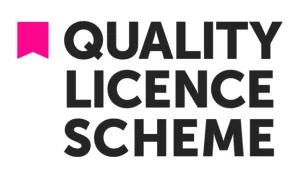Welcome to Open Learning College – Change your career, Increase your salary, and Improve your life.
 Course Overview
Course Overview 
Embark on a transformative learning journey with the UK’s most innovative home study provider, offering courses designed to unlock your true potential and facilitate the career change you desire. Access our distance learning courses directly from anywhere, anytime, and acquire industry-recognised Professional Qualifications essential for advancing in your career.
Specifically, explore the flexible and convenient Paralegal Administration – Conveyancing (Level 3) course, an ideal way to gain a diploma qualification. Whether you aim for further education, improved job prospects, or expanded knowledge, this comprehensive course allows you to prepare thoroughly for exams or careers through home study. Plus, it’s structured to be accessible and beneficial even if you have no prior knowledge in Paralegal Administration – Conveyancing.
This is an exciting new law course designed both for Conveyancers who have some practical experience and those wishing to embark on a Conveyancing career within the legal profession. The course is stand alone but would also be a good foundation to students wishing to further their career by taking professional qualifications or a law degree.
The course provides a background of general law as a starting point, and explains some important points of land law which can be seen the theory behind Conveyancing. The course then proceeds to look in depth at the Conveyancing procedure in a straightforward way.
 Course Key Topics
Course Key Topics
the Paralegal Administration – Conveyancing (Level 3) course is divided into 10 modules.
Module 1: Background of General Law
This module will consider briefly, how law is made and will look at the common law system of judicial precedent as made in the form of case law by the Judges in Court. It will also track how a Bill goes through Parliament and receives the Royal Assent to form part of the Country’s Legislation. Another major source of UK Law is the all important European law which are made in the European Courts which will be considered.
Module 2: Introduction to Concepts of Land Law
Land Law can be seen as the theory behind Conveyancing and module two and three looks as some of the concepts of land Law which have grown up since the 1925 Land Legislation and also by case law. In this module the question is asked “What is Land”? “Just what does the Land owner own?” Originally it was thought that the land owner owned land up to the heavens and down to the depths of the earth. You will see that this concept has been modified to a great extent by both Legislation and case law. It is an important concept because whatever is attached to land becomes part of land. So, it is vital to distinguish between what is a fixture and will “run with the land” when the property is sold, and what is a fitting, a chattel and will remain the property of the seller of the property and can be removed when the property is sold.
Land Registration – this is an important concept in the conveyancing process so the reasons why land is registered with be discussed together with a comprehensive look at the Land Registration Act 2002 and its aims and objectives.
Module 3: Land Law
Easements and covenants are a feature of every day Conveyancing and the theory of these are examined here. An easement is a legal right to use something. If property abuts a private road, then it is vital that there is an easement allowing the owner to use it, otherwise the land will become “landlocked.” On many housing estates there are shared driveways, which mean that the person not owning the drive must be granted a legal right to use it.
The fascinating area of covenants is looked at. A covenant is a promise made by deed that the person buying the land will refrain from doing something. This is a restrictive covenant and if negative in nature may run with the land when it is sold and bind future owners of it. However, the rules are quite complex as you will see. An example of a restrictive covenant would be “Not to use the property for any commercial use.” Or “Not to keep pigs or chickens on the property.” A positive covenant such as requiring an owner to maintain a fence might not run with the land when the property is sold. You will find this introduction to easements and covenants very useful when working as a Conveyancer.
Module 4: Conveyancing overview
This module gives a brief overview of the Conveyancing procedure for both sales and purchases and the tasks carried out by respective solicitors. Some initials areas are looked at including conflict rules as laid down by the Solicitors Regulations Authority conduct rules and outcomes. Council for Licensed Conveyancers conduct rules regarding acting for both parties in a transaction are also considered. Anti-Money Laundering checks are vital in a conveyancing transaction and the requirements of Solicitors Regulation Authority, Council for Licensed Conveyancers and Council for Mortgage Lenders will be perused.
Module 5: Preparing the Contract for Sale and Deducing Title
The Law Society’s Protocol is used by most Conveyancers so the student will gain a working knowledge of this.
this course is intended to be practical so the paralegal will be shown how to draft a sale contract and what is included in the Contract package. This will involve deducing title, so the contents of official copies. will be considered and also an Epitome of title if the title to the property is unregistered.
Allied matters at the point of sending out the contract will be discussed including the purpose and content of the Energy Performance certificate. If the client has a mortgage on the property a redemption statement will be needed from the lenders, and the procedure for obtaining this and how to deal with it will be discussed.
Module 6: Taking Instructions on a Purchase
This module tracks a purchase transaction making searches through to checking the contract and title in both registered and unregistered titles. When a buyer buys a property the maximum “caveat emptor” applies which means “let the buyer beware.” This means that the onus is on the buyer to check out both the physical state of the property and the title.
So, the Conveyancer will advise the buyer on the different types of surveys – in addition to the survey the buyer’s lender will carry out. The Conveyancer will put in hand all the relevant searches applicable to the location of the property. A search of the local authority will be obtained showing the situation of the roads in the locality and whether they are maintainable at the public expense, an Environmental search, possibly a Coal mining or tin mining search. The title to the property will be checked to ensure that those easements referred to in an earlier module are present, if they are needed, and that any covenants on the property are workable.
Module 7: From Mortgage Offer to Exchange
When the mortgage offer is issued this must be carefully checked by the Conveyancer who must ensure that all the lender’s conditions can be complied with. The client must receive a report on the mortgage offer and a Bankruptcy search must be made. This will be explored fully. Exchange of contracts usually takes place on the telephone using an appropriate formula. The student will gain knowledge of each formula and look at circumstances where each is appropriate.
Module 8: Preparing for Completion
This is a busy time for Conveyancers, final searches have to be requisitioned, money has to be requested from the lender and any conditions on the mortgage offer have to be complied with. The client will receive a completion statement and all documents must be signed if not already signed. On completion day there are certain formalities which need to be complied with such as discharging the mortgage on a sale transaction. All these aspects will be examined.
There will also be a brief look at what happens if things go wrong and completion is delayed.
Module 9: Post Completion
After completion there are some important time limits which must be complied with or there may be penalties payable. Stamp duty land tax has to be paid and then for the purchase there are land registry formalities which have to be completed. All the forms, for both registered and unregistered titles to make application to the Land Registry will be looked at point by point.
Module 10: Dealing with Leaseholds
In this final module the paralegal will learn about Leasehold transactions with the particular emphasis on leases of flats. The terms of a lease will be examined such as forfeiture clause and covenants. The requirements of Council of Mortgage lenders handbook for Leases will be closely observed.
(Please click on the curriculum tab above to see a detailed view of each module)
Course Content
Paralegal Administration – Conveyancing (Level 3) – FREE Starter Pack
How to…. (a series of explainer videos)
Module 1 – Background of General Law
Module 2 – Introduction to Concepts of Land Law
Module 3 – Land Law
Module 4 – Conveyancing overview
Module 5 – Preparing the Contract for Sale and Deducing Title
Module 6 – Taking Instructions on a Purchase
Module 7 – From Mortgage Offer to Exchange
Module 8 – Preparing for Completion
Module 9 – Post Completion
Module 10 – Dealing with Leaseholds
Course Resources
Final Exam
College Announcements
🔍 Unlock the Paralegal Administration – Conveyancing Level 3 with £50 OFF the Course! ⚖️📜
Ready to step into the captivating world of paralegal administration and conveyancing?
For a limited time, seize the opportunity to enrol in our Paralegal Administration – Conveyancing Level 3 course with an exclusive £50 discount!
Use code LEGAL50 at checkout before the month concludes!
🌟 Why Choose Our Paralegal Administration – Conveyancing Level 3 Course
Presented by Open Learning College, this course is your pathway to mastering the intricacies of paralegal administration with a focus on conveyancing. Dive into comprehensive modules covering essential topics—from legal procedures to property transactions. Gain practical insights into contract law, client communication, and document preparation in a legal context.
💡 What Makes Our Course Shine
Expert Guidance: Benefit from experienced tutors providing support throughout your learning journey.
Real-World Skills: Acquire practical knowledge crucial for success in paralegal administration and conveyancing.
Flexible Learning: Tailor your studies to your schedule with 24/7 access to course materials.
Don't miss this chance to unlock the secrets of paralegal administration and conveyancing at a discounted rate! Enrol now, use code LEGAL50* at checkout, and embark on your journey towards becoming a skilled legal professional. ⚖️📜
*This discount code cannot be used in conjunction with any other offer









 Get Social!
Get Social!







Grace Thompson